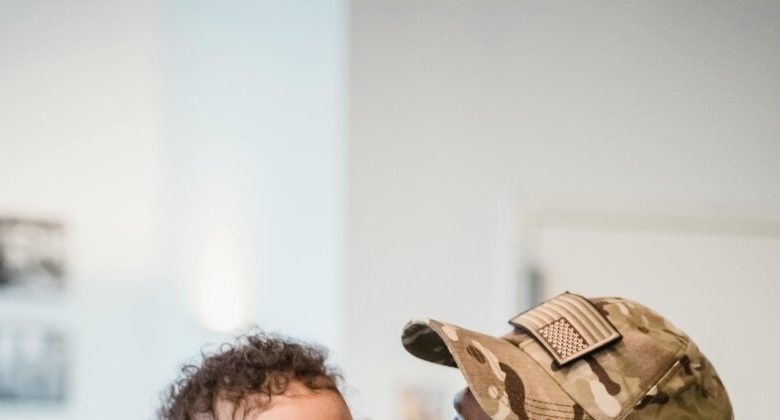Helping Kids Adjust During a Military Move: What to Know

For military families, moving is a regular part of life that is often dictated by permanent change of station (PCS) orders. While adults may view these relocations as a routine part of life, children experience them very differently. Each move can bring emotional upheaval as your children leave behind friends, familiar schools, and their comforting routines. Your children may feel anxious sad, or even excited about the change, but as a parent, it is your job to help your child adapt to a new environment while maintaining a sense of stability. Learn the practical strategies you need to know to support your children through the transition and make the process as smooth as possible.
Understand Your Child’s Perspective
During a military move, children often have mixed emotions and may feel sad about leaving friends or nervous about starting at a new school. Considering military families move every 2.5 years on average, the first few years will likely be the most challenging for your child or children. Younger children may not fully understand why the move is necessary to begin with, whereas teens may be frustrated about uprooting their entire social life.
Acknowledging your child’s feelings is the first step towards helping them cope, so encourage them to be open and to have honest conversations about the move. Ask them how they feel and validate all of their emotions, regardless of whether it’s excitement, anger, anxiety, or any other. Assure them that their concerns are important and that you’re there to help them through every single step of the process. This empathy will help you to ease their fears and build trust so that you can create a positive foundation for the transition.
Involve Your Kids in the Moving Process
When kids feel involved in the moving process, they are more likely to approach the transition with a positive attitude. By giving your kids a role, no matter how small it may be, you can foster a sense of control and excitement. Start by discussing the move openly and inviting them to help with any preparations. Younger kids can assist by packing their toys, for instance, or by choosing colors for their new room.
Older children, on the other hand, can research local attractions or help plan the layout of the new house. Including your kids in the decision-making process will help them to feel valued and make the move seem like a family adventure rather than an unsettling change.
Keep Routines as Consistent as Possible
A military move disrupts many aspects of your life, but maintaining familiar routines can provide children with a sense of stability that is all too important. Predictable daily activities, such as meal times or bedtime rituals, can help your kids to feel grounded even in the midst of major changes. If possible, start by introducing small elements of a new routine before the move, then after the move focus on re-establishing old routines as quickly as possible. Consistency will reassure your children that, although the environment is changing, their family life remains a stable and comforting constant.
Help Them Say Goodbye and Stay Connected
Saying goodbye will be one of the hardest parts of moving for your kids, but you can help them find closure by organizing farewell activities such as a goodbye party with friends or creating a memory book filled with photos or notes. Encourage your kids to exchange contact information with friends and show them how to stay connected digitally through calls or social media if they have it. Maintaining these relationships can help ease the transition by giving them a sense of continuity in their social lives. Remind them that saying goodbye doesn’t mean having to cut ties and that it’s actually an opportunity to cherish and maintain long-distance friendships.
Prepare for the New Environment
The unknown can be a daunting proposition for children, so preparing them for what lies ahead will be vital. Research the new location where you will be living together with your children and focus on schools, parks, and activities that they might enjoy. If it’s possible, visit the new home or base before the moving day or take a virtual tour to familiarize your kids with the area. Highlight the more positive aspects of the new environment, such as any exciting attractions or opportunities to make friends, in order to frame the move as a chance for adventure and growth.
Encourage Socialization and Making New Friends
Adjusting to any new social environment will be one of the biggest challenges for a kid during your move. Help them to integrate with the new community by encouraging them to participate in extracurricular activities, as an example, or to join local clubs. Schools often have programs that are designed specifically to help new students adjust, so ask administrators about any resources that may be available for military families. Set an example for your kid by introducing yourself to neighbors and by getting involved in community events, thus showing your kids that making connections is both important and rewarding.
Monitor Your Children’s Emotional Adjustment
Even after the move is officially complete, kids may take time to fully adjust to their new environment. Be attentive to signs of stress, such as withdrawal, changes in their behavior, or difficulty sleeping, and regularly check in with your kids to see how they’re feeling. Encourage them to share news of any struggles they may be facing or feeling and, if your child struggles significantly with the transition, consider seeking professional support. School counselors, military family support programs, or therapists are all useful professionals who can offer resources and guidance. Remember that every child adjusts at their own pace and patience will be the key to helping them feel secure in their new environment.
Supporting your children through change
Military moves can be a challenging experience for children but, with the right approach, they can also be an opportunity for growth and resilience. By understanding where your children are coming from with their feelings and maintaining an element of consistency after the move, you can take the necessary steps to help them transition to contentness. Saying goodbye, embracing the new, and staying connected to the past are all important parts of the journey and, as a parent, your support and encouragement will make all the difference in helping your kids adjust and find joy in the adventure of a military move.




